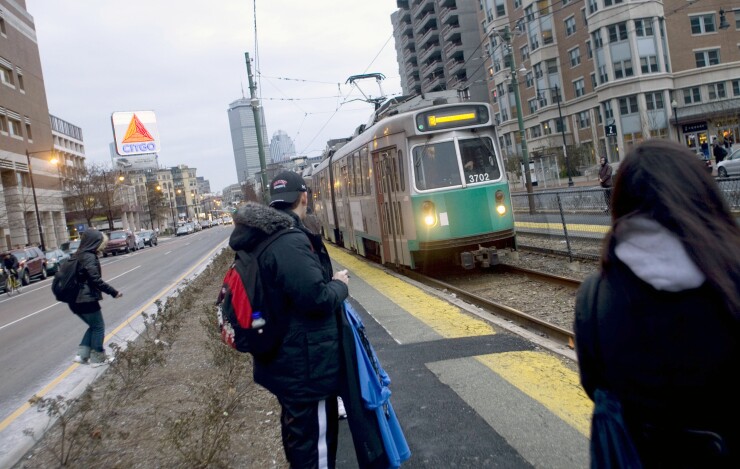Boston’s Massachusetts Bay Transportation Authority has approved a $723 million overhaul of its fare system that would eliminate cash payments on buses and trains.
The MBTA on Monday approved a 13-year contract with Cubic Corp. to design and operate a new fare system that would be fully implemented by 2020, according to
The MBTA proposes to eliminate on-board cash payments by expanding electronic fare payment terminals to all vehicles and turnstiles, which will save the agency $65 million over the next dozen years. Currently about 7% of riders use cash. Most riders pay via the MBTA’s reloadable contactless CharlieCard introduced in 2007.

A new version of the CharlieCard will enable riders to link any payment card or account to their transit card, which they can manage via a mobile app. Riders may also use a Near Field Communication-enabled handset or payment card to pay fares directly on buses, trains and in stations, reports said.
MBTA customers may purchase the new CharlieCard for a fee of about $5, to reduce the cost of replacing lost cards under the existing system, and the MBTA will still accept cash for fare cards sold at kiosks, MBTA stations and stores. A program to provide low-income riders with free CharlieCards is in development, according to reports.
"The new system will be compatible with all modes and will provide more options for paying fares, and will have more fare media available for use," said Luis Manuel Ramirez, the MBTA's general manager, in a Tuesday press release.
Cubic serves as the payments system integrator for mass transit operations in London, Sydney, Chicago, Miami and San Francisco, where the company is based.
New York is also working to replace its 23-year-old




